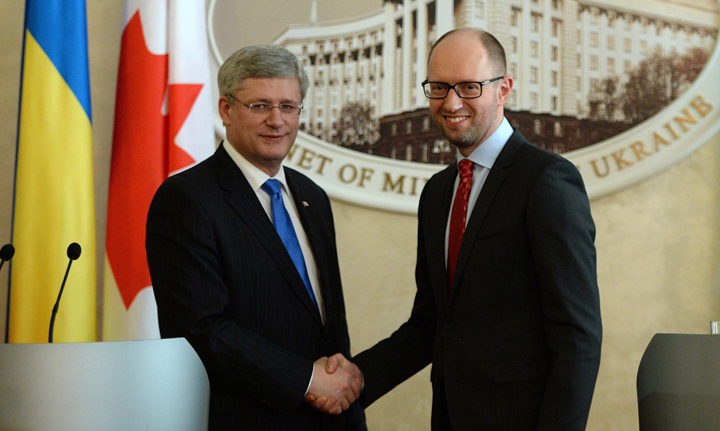OTTAWA – Canada has little hope of reaping any kind of energy or resource windfall from the crisis in Ukraine.

That message was delivered Thursday to a House of Commons committee in testimony by energy experts from Alberta, Europe, and Ukraine.
The natural resources committee was told that Canada is the better part of a decade away from having the pipelines and other infrastructure necessary to be any kind of meaningful energy supplier to Europe.
READ MORE: Canadian warship reassigned to NATO force
The committee is hearing evidence on whether there are opportunities for Canada to export oil and gas to Europe and help wean Ukraine off its dependence on Russian energy.
Russia supplies most of Ukraine’s natural gas, which gives it a major economic lever over the Ukrainian military – one it is currently exercising.
Russia annexed the Crimean Peninsula last month while pro-Russian gunmen are taking over cities in the country’s eastern region.
READ MORE: Putin’s war games tip Russia into recession
The testimony offered a sobering counterpoint to the Harper government’s public enthusiasm about increased Canadian energy exports to Europe.
German Chancellor Angela Merkel appeared unenthusiastic about that prospect when she hosted Prime Minister Stephen Harper in March. She, too, noted that Canada lacks the infrastructure to actually move the products.
Geoff Hill, an oil and gas expert with Deloitte Canada, said the country has abundant resources but there’s no sign of the pipelines and other infrastructure needed to increase exports to Europe.
“We’re still left with a very serious infrastructure deficit,” he told MPs.
“The most aggressive estimates to supply gas to Europe is around five or six, or eight years, during which time we have to be exceptionally busy building the needed facilities, none of which we are currently building at the required pace.”
Michael Edwards, a policy analyst with the firm, Fairweather Hill, echoed that assessment. The best bet would be for Canada to ship liquefied natural gas across the Atlantic, but there isn’t enough Canadian gas available on the East Coast to justify further investment in LNG plants, he said.
That could change if more pipelines could bring more gas into the region, “but that’s a five- to 10-year prospect,” said Edwards.
Hill and Edwards said Canada could make inroads in Ukraine’s energy sector by exporting Canadian expertise on energy efficiency to help it cut its natural gas usage.
That would be a worthy effort that could make a difference because Ukraine is one of the least energy-efficient countries, said Anders Aslund, a Russia-Ukraine expert with Peterson Institute for International Economics in Washington.



Comments